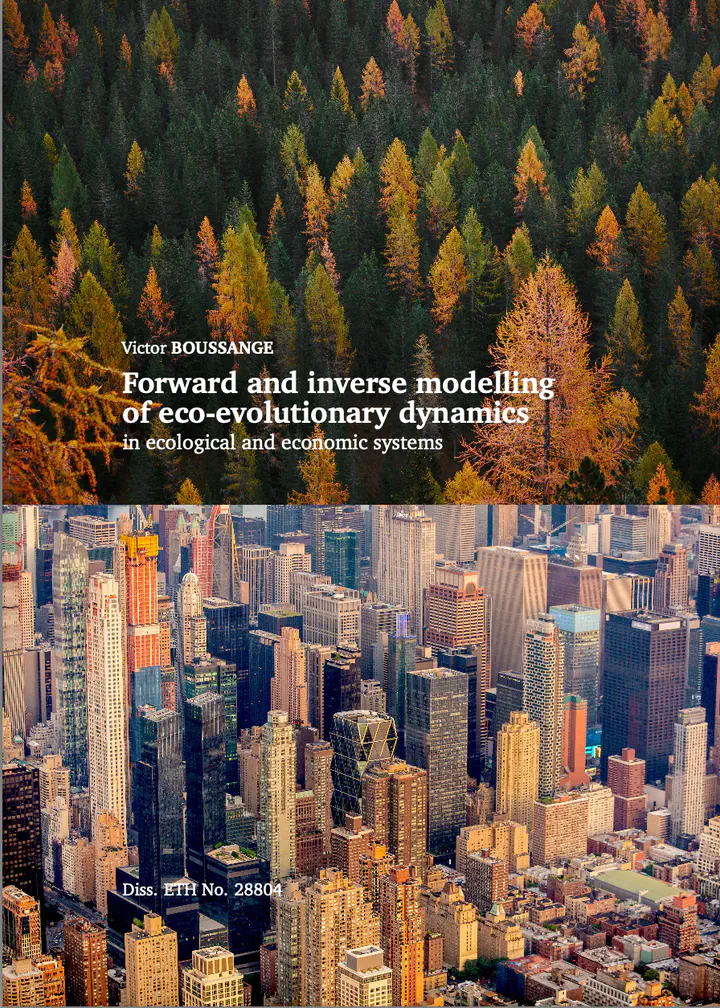Forward and inverse modelling of eco-evolutionary dynamics in ecological and economic systems

Abstract
Ecological and economic systems are complex adaptive systems, composed of multiple entities structured at different organizational levels – from genes to ecological communities and from individual behavioral rules to national economies –, that interact between themselves and their environment, and experience evolutionary processes. The processes operating at the different organizational scales affect each other, generating complex couplings across scales. Yet, despite this astonishing organizational complexity, ecological and economic systems both display invariant patterns. A fundamental challenge in the study of ecological and economic systems is to identify the general organizational principles from which these patterns originate. Recently, studies have shown that evolutionary processes can occur on similar time scales as ecological processes, generating eco-evolutionary feedbacks which may play an important role on the dynamics of ecological systems. In parallel, studies on economic systems suggest that economic change is determined by analogous eco-evolutionary processes. Yet, our understanding of eco-evolutionary processes and feedback mechanisms in empirical systems is limited, because of the oversimplicity of current eco-evolutionary models and a lack of confrontation with empirical data. By developing novel modelling approaches to improve the modelling of empirical systems, this thesis advances our general understanding of the eco-evolutionary processes and feedbacks shaping the dynamics of ecological and economic systems. Specifically, Chapter 2 presents and analyses an eco-evolutionary model on spatial graphs to understand how eco-evolutionary processes, together with complex habitat structures, influence the phenotypic distribution of biological populations. Chapter 3 presents an inverse modelling framework to estimate the most likely parameter values of dynamical models from empirical data, granting the opportunity to discriminate between competing eco-evolutionary hypotheses. Chapter 4 tests whether processes operating on economic activities, consisting of positive and negative interactions between them, their spatial dispersal and their transformations, can explain their dynamics at the country level. To reach this goal, the inverse modelling framework, together with data covering 59 years of economic time series over 74 countries, are used. Finally, Chapter 5 presents two numerical methods to efficiently simulate eco-evolutionary models of biological populations that are structured in high dimensional spatial and phenotypic spaces. This thesis altogether advances our general understanding of the eco-evolutionary processes and feedbacks shaping the dynamics of biological populations and economic activities. A comprehensive mapping of elemental eco-evolutionary feedbacks influencing spatially structured biological populations is established. As regards economic activities, processes involving positive interactions between themselves and spatial dispersal are evidenced to systematically affect their dynamics at the country scale. In parallel to those fundamental results, novel forward and inverse modelling methods are developed, allowing to better capture the dynamics of empirical systems. In the face of the ongoing climate and biodiversity crisis, there is an urgent need to accelerate our general understanding of the mechanisms shaping our world. Bridging biology, mathematical modelling, machine learning and economics, the approaches developed in this thesis can massively help us to reach this goal.